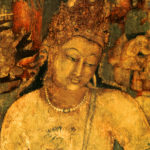Recent Comments
- Vajragoni on The Lankavatarian Book of the Dead
- Scott on The Lankavatarian Book of the Dead
- Scott on The Lankavatarian Book of the Dead
- Vajragoni on Insights into Voidness
- Vajragoni on Is there an Afterlife?
-
Recent Posts
Categories
- A Darkness Visible
- A Docetic Assessment
- A Mystical Odyssey through the Sagathakam
- AI Creations
- Akṣayamatinirdeśasūtra
- Akṣhobhya’s Pure Land
- Ālaya-vijñāna
- Anūnatvāpūrṇatvanirdeśaparivarta
- Ariyapariyesanā Sutta
- Ascending the Noble Mountain of Primordial Perfection
- Asceticism
- Ashtavakra Gita in Light of the Unborn
- Audiobook
- Bankei Zen
- Beyond the Ascent
- Beyond the Rainbow Body
- Black Dragon Eye Mandala
- Bodhicitta
- Books
- Buddhadharma
- Buddhism’s Black Holes
- Buddhist Anecdotes
- Buddhist Hells
- Buddhist Meditations on the Tarot
- Chuang-Tzu
- Contemporary Musings
- Ḍākiṇī
- Dāsbodh
- Dharmakaya Abbey
- Dharmakaya Stick
- Divine Revelation
- Doctrine of the Void
- Dust Contemplation
- Ekacitta: Advanced Studies in Dark Zen
- Entry into the Dharmadhātu
- Eremitical Dhyani Meditations
- Exploring the Book of Revelation
- Gnostikos
- Hsin Hsin Ming
- Journey to the Center of the Mind
- Karma and Rebirth
- Korean Sŏn
- Kulayarāja Tantra—The Motherly Buddha
- Little Office of Our Lady of the Void
- LSD and Psychedelic Buddhism
- Māṇḍukya Kārikā
- Mañjuśrī Teaches Prajñāpāramitā
- Māra and Satan
- Meet the Buddhas
- Meister Eckhart
- Mud and Water: Bassui Zen
- Mystagogia
- Nirvana
- Notes from the Iron Stupa
- Nothingness in Nāgārjuna and John of the Cross
- Obscure Religious Cults
- Preparation for the Afterlife
- Primordial Qigong
- Reflections on the Saṃdhinirmocana Sūtra
- Sessions with Grok
- Spirituality
- Springtime with Tozen
- Terma: A Mind Film by Vajragoni
- The Afterglow
- The Awakening of Faith
- The Bhagavad Gita
- The Book of Bodhi
- The Cloud of Unknowing in Light of the Unborn
- The Diamond Sutra
- The Divine Ātman
- The Divine Liturgy of Vajrasattva
- The Doctrine of Awakening
- The Dragon Mind of Zen Tarot
- The Elucidation of Consciousness
- The Experience of No-Self
- The Great Perfection of the Unborn Mind: A Book of Privy Counseling
- The Heart Sutra
- The Hermit's Den
- The Khaggavisāṇa Sutta: A Rhinoceros Horn
- The Lankavatara Sutra
- The Lankavatarian Book of the Dead
- The Lion's Roar of Queen Śrīmālā
- The Lotus Sutra
- The Mahāparinirvāṇasūtra
- The Naga Chronicles
- The Platform Sutra
- The Ratnagotravibhāgaśāstra
- The School of the Spirit
- The Secret Golden Light of the Unborn
- The Soul
- The Śūrańgama Sūtra
- The Sutra of Primordial Enlightenment
- The Tathāgatagarbhatārā Tantra
- The Udāna
- The Unborn Mind Mythos
- The Unborn Mind Sessions
- The Unborn Odyssey: A Novel
- The Vajrasamādhi Sutra
- The Vimalakirti Sutra
- The Yogasūtras of Patañjali
- The Zen Teaching of Bodhidharma
- The Zen Teaching of Instantaneous Awakening
- The Zen Teachings of Huang Po
- Theologia Mystica
- Tozen Teaching
- Tsung-mi: An Intimate Study
- Unborn I Ching
- Unborn Light Reiki
- Uncategorized
- Vasubandhu and the Absolute
- Wisdom from the Masters
- Wordsworth and Zen
- Yoga of the Manomayakāya
- Zen
- Zuowang
Archives
- May 2025
- April 2025
- March 2025
- February 2025
- October 2024
- August 2024
- February 2024
- January 2024
- December 2023
- November 2023
- October 2023
- September 2023
- August 2023
- July 2023
- June 2023
- May 2023
- April 2023
- March 2023
- February 2023
- January 2023
- December 2022
- November 2022
- October 2022
- September 2022
- August 2022
- May 2022
- April 2022
- March 2022
- February 2022
- January 2022
- December 2021
- November 2021
- October 2021
- September 2021
- August 2021
- May 2021
- April 2021
- March 2021
- February 2021
- January 2021
- December 2020
- November 2020
- October 2020
- September 2020
- August 2020
- May 2020
- April 2020
- March 2020
- February 2020
- January 2020
- December 2019
- November 2019
- October 2019
- September 2019
- August 2019
- June 2019
- February 2019
- January 2019
- December 2018
- October 2018
- August 2018
- April 2018
- March 2018
- February 2018
- January 2018
- December 2017
- November 2017
- October 2017
- September 2017
- August 2017
- May 2017
- April 2017
- March 2017
- February 2017
- January 2017
- December 2016
- November 2016
- October 2016
- September 2016
- August 2016
- July 2016
- May 2016
- April 2016
- March 2016
- February 2016
- January 2016
- December 2015
- November 2015
- October 2015
- September 2015
- August 2015
- July 2015
- June 2015
- May 2015
- April 2015
- March 2015
- February 2015
- January 2015
- December 2014
- November 2014
- October 2014
- September 2014
- August 2014
- May 2014
- April 2014
- March 2014
- February 2014
- January 2014
- December 2013
- November 2013
- October 2013
- September 2013
- August 2013
- May 2013
- April 2013
- March 2013
- February 2013
- January 2013
- December 2012
- November 2012
- October 2012
- September 2012
- August 2012
- May 2012
- April 2012
- March 2012
- February 2012
- January 2012
- December 2011
- November 2011
- October 2011
Meta
Category Archives: Buddhist Hells
Sweet Soother of Souls

There are many horrors awaiting those who are consigned to the Buddhist Hells, but on occasion Compassion itself is to be found there and hopefully experienced. Eileen Gardiner’s Buddhist Hell: Visions, Tours, and Descriptions of the Infernal Otherworld, covers tales of those who descend into hell in order to comfort those poor and tortured souls who find no rest or comfort from their incessant inflictions. One of the Buddha’s major disciples, Maudgalyāyana or Mulian in Chinese Buddhism, has special powers that empowered him to communicate with the dead; he uses this power to visit his mother in hell in the hopes of saving her:
Posted in Buddhist Hells
Tagged Avalokiteśvara, Eileen Gardiner, Karandavyuha Sutra, Mulian, Yama
Leave a comment
Avīci Hell

Perhaps the best known hell-realm within Buddhism is Avīci Hell. It’s the most ferocious and unrelenting dominion that houses the most grievous perpetrators such as those who commit matricide and patricide, rapists, in particular one Ananda (not to be confused with Gautama’s cousin)—who raped his own cousin, the Theri Uppalavanna, heinous murderers (certainly serial murderers have a special place reserved for them in Avīci) and overt slanderers against the Buddha and the Buddhadharma—most notably Devadatta from our last blog. Even though Devadatta eventually becomes liberated from Avīci, whose time is measured in kalpas (a unit of time that describes how long it takes the universe to destroy and recreate itself), he’s still therein suffering from its fire and brimstone.*
Posted in Buddhist Hells
Tagged Avici Hell, Dhammapada in Light of the Unborn, five immediacies, kalpa, Lankavatara Sutra, Red Pine, Uppalavanna
1 Comment
Devadatta—the Buddhist Judas

There have been many personages who have been consigned to the Buddhist Hells, but perhaps none more notorious than one of the Buddha’s own disciples—Devadatta, who clearly resembles that of a Buddhist Judas. Devadatta was a cousin and brother-in-law of Gautama Siddhārtha and also the brother of the Buddha’s chief disciple—Ānanda. Devadatta conspired to break ranks with the original Sangha and attempted to form his own community with 500 other monks. In time he enjoyed supernormal powers of the mundane plane (puthujjana-iddhi), and convinced of his own superiority, decided to assassinate Gautama Buddha. Devadatta attempted to kill the Buddha himself by dropping a large boulder upon him from on high, but the Blessed One walked away unharmed. Undeterred, Devadatta set upon him an aggressive elephant named Nālāgiri, but the Blessed One simply covered Nālāgiri with the loving compassion of his own mind, wherewith the mighty creature bowed to the ground and worshipped him. Thereafter, however, the tables soon turned on Devadatta. Kokālika, a main disciple of Devadatta, died of ulcers all over his body and was reborn in the Lotus hell because he spoke ill about the Buddha’s disciples Sāriputta and Moggallāna. As for the fate of Devadatta himself:
Yama and the ill-fated being

In some Buddhist traditions there are Ten Kings of Hell, but the most prominent one is known as Yama. It is revealed in the suttas that Yama was himself reborn in hell because of his own former actions; pining for his former state as a human he yearns to be able to hear the Buddhadharma from the lips of the Blessed One and thus be liberated from his suffering:
The Karma Factor

Amazing Art by Daniel Martin Diaz
Being reborn in the hell-realms is based upon the degree of negative-karma to warrant such a rebirth. This karmic-principle is merciless and irrevocable. As the Dhammapada teaches, you are what you think, and what you think leads to actions and in so doing one can reap much bitter fruit if those actions are wrongfully-conceived and administered. This is not just limited to human beings but also to inhabitants of the god-realms as well. Yea, any being, even devas, are responsible for their actions—thus one is not punished or rewarded by celestial agencies but by one’s own karmic-triggers [action]. Although out of the six realms of impermanence, it is best to be reborn as a human, since the human agency can best be transformed through the Holy Dharma in transcending the samsaric-curse and thus stop the karmic-wheel of transmigration, regeneration and rebirth:
Posted in Buddhist Hells
Tagged Bodhi Orientation, Karma, Lauding the Infinite One, Tozen
2 Comments
Buddhist Hells

As is evident from this blog’s title, hell within Buddhism is pluralized as opposed to its singular Christian counterpart, for there are many hells—in some texts, vast panoramic cities of them. The English word hell is derived from a Northern European Goddess named Hel, meaning the one who “covers things up.” In point of fact, it was not until Milton’s majestic poem, Paradise Lost, which depicts Satan (Myself Am Hell) and hell’s “vast pandemonium”, along with Dante’s poem Inferno (from the larger Divine Comedy), that notions of hells fiery sulfuric-nature became imprinted within the Western psyche. Buddhist notions of hell antecede its Western equivalent:
Posted in Buddhist Hells, Spirituality
Tagged Diyu, Eight Major Hells, Hel, hell, Jambudvīpa, Naraka
2 Comments
